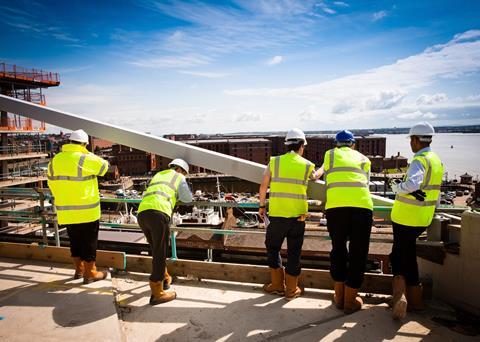Price of buildings likely to rise to pay for regulation and oversight of competence frameworks
One of the key figures behind a 150-page report into how to improve competence in the industry has admitted the proposals will see firms saddled with extra costs.
The Competency Steering Group’s (CSG) interim report, Raising the Bar, published earlier this month, made 67 recommendations as part of a plan to establish a new building safety competence committee and come up with competence frameworks to apply to all those working on high-risk residential buildings.

It set out proposals for regulating the competence of 12 separate roles in the construction of high-risk residential buildings – including engineers, product installers and fire consultants – by respective trade bodies.
But Peter Caplehorn, interim chief executive of the Construction Products Associations and deputy chairman of the CSG, said the changes would result in extra costs for businesses.
He admitted: “Obviously there are costs here. Overall, in the short term, it’s going to cost people more.”
Under the proposals, individuals and firms across the roles will have to become accredited, undertake regular CPDs and submit to reassessments of competence – while trade bodies doing the accrediting will themselves have to be accredited by a qualified body.
Earlier this summer, the government said the industry could have to spend as much as £570m per year on post-Grenfell regulatory work. But worries are growing the industry will be split between firms prepared to stump up and those deciding to duck out.
Andrew Barraclough, group design director at Wates, said: “Quite naturally only some people are going to invest in getting accreditation. The dilemma for companies and individuals is this is going to drive up costs. I suspect only some people will involve themselves and we’ll get to a partitioned industry.”
And Charis Beverton, senior associate at law firm Winkworth Sherwood, added: “This will be taken up by bigger companies but I can see a whole part of the industry saying: ‘we don’t want anything to do with it’ and stepping away.”
Caplehorn said he was not yet sure where the extra costs will fall but fire engineer Steve Cooper, director at consultant Tenos, said members of professional institutions are most likely to bear the brunt through increased membership fees to pay for their new regulatory roles. Higher membership fees, he added, “will be passed on to clients and the cost of buildings will need to rise as a result”.
Another industry body said carrying out all the required checks would hit members in the pocket. “Verification is going to take money and time,” Jenny Burridge, head of structural engineering at the Concrete Centre, added.
The report, which is out to consultation until 18 October, was put together by the CSG in response to the call in Dame Judith Hackitt’s review of building safety regulations to improve the level of industry skills and knowledge.




























No comments yet